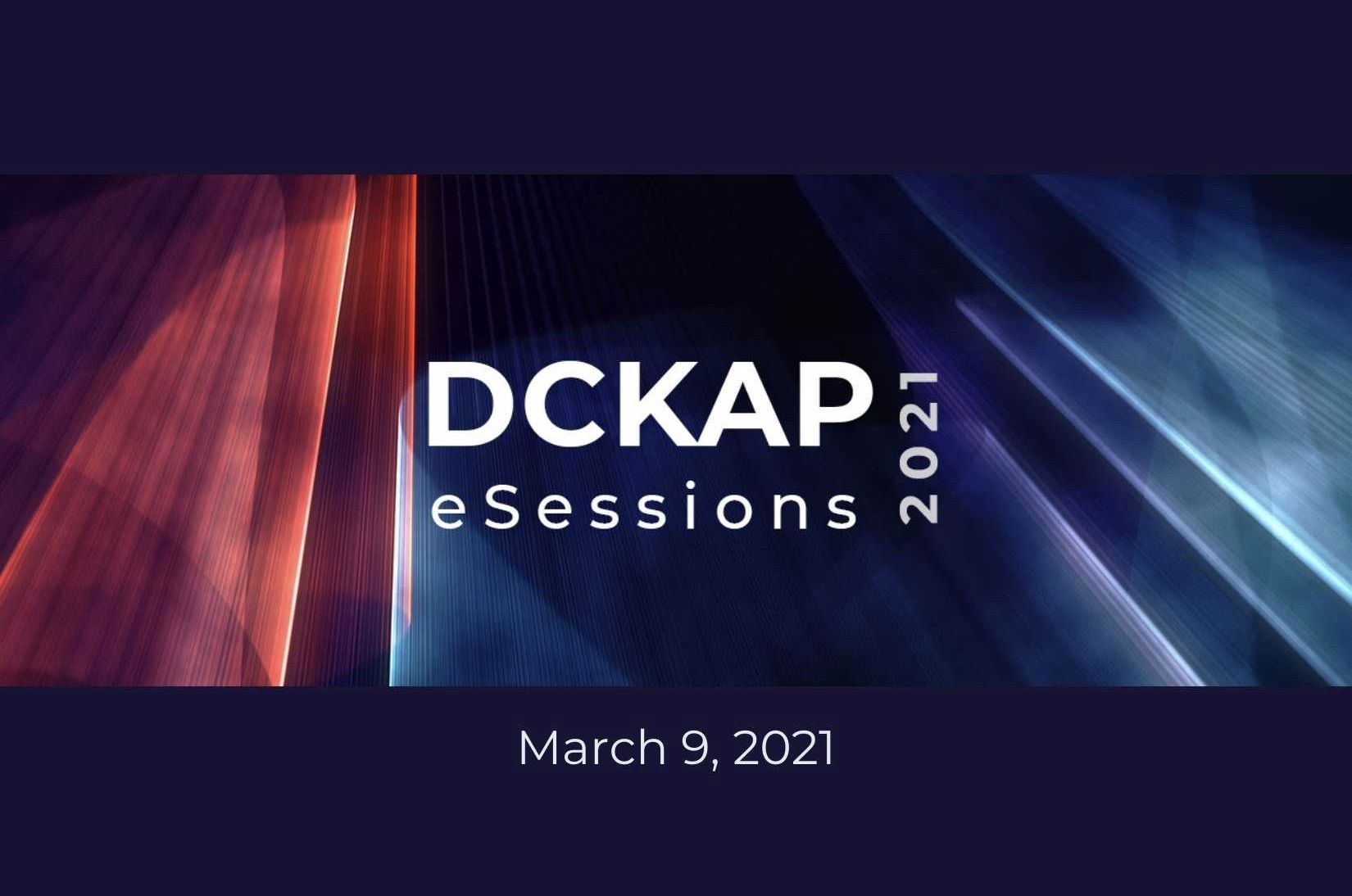Choosing a Robust Platform for B2B eCommerce
With over 45 years of service, Midland Scientific is a nationwide, full-line distributor of lab supplies and equipment. Their customers range from the food and beverage industry to agriculture and mining, and they work hard at catering to these variances. In searching for an ecommerce platform to accommodate their needs, the ability for flexibility and adaptation to customer requirements was a main theme. During our most recent DCKAP eSessions event, Rodrigo Neves, the Director of IT at Midland Scientific, told us about the process of choosing the partners they did for their new site, and the results we were able to achieve together.
When speaking about their situation prior to choosing a new ecommerce platform, Rodrigo explains their process. “We were using an ecommerce platform called B2B Seller (for Epicor). We already had about 20 of our orders online, and over the years we had a lot of customizations that we had to make on that platform to accommodate our customer requirements. Especially in the B2B market.”
Customers finding what they need quickly and efficiently is at the core of ensuring sales in B2B ecommerce. As Rodrigo tell us, “The main problem that we were facing was in ‘search’. It’s something that we’re still trying to adjust in our site, but speed and accuracy were some of the big factors that were affecting our site.”
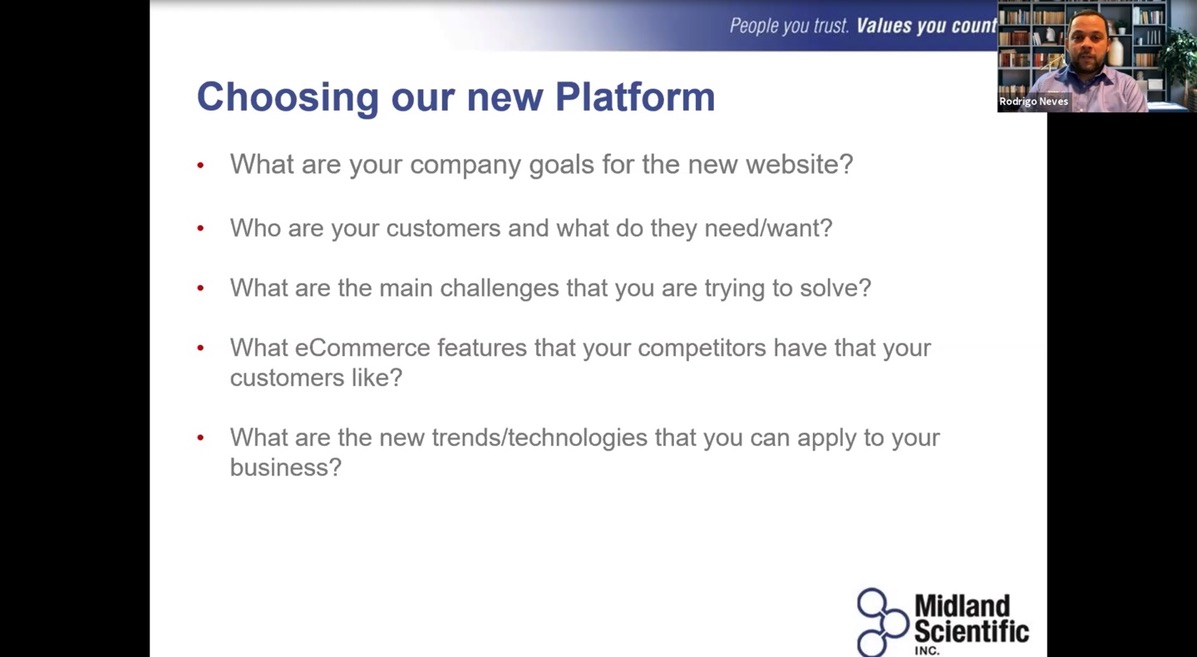
Going further into their thought process, he continues by laying out the questions that were most important to their team. “When we were choosing our new platform, and all of the systems that were around the ecommerce area, we had to answer some of these questions before we started even talking about the requirements.”
Looking at competitors, keeping in mind the way their current customers order from them, and learning new trends and technologies they could use on their site were some of the ways they evaluated to improve the ecommerce experience. This led them to choose the best partners for their needs. Magento as the platform of choice, Nexcess as the best option for hosting, as well as using the expertise of Avalara for tax support, and as DCKAP and DCKAP Integrator for seamless integration.
You can watch the full presentation here:
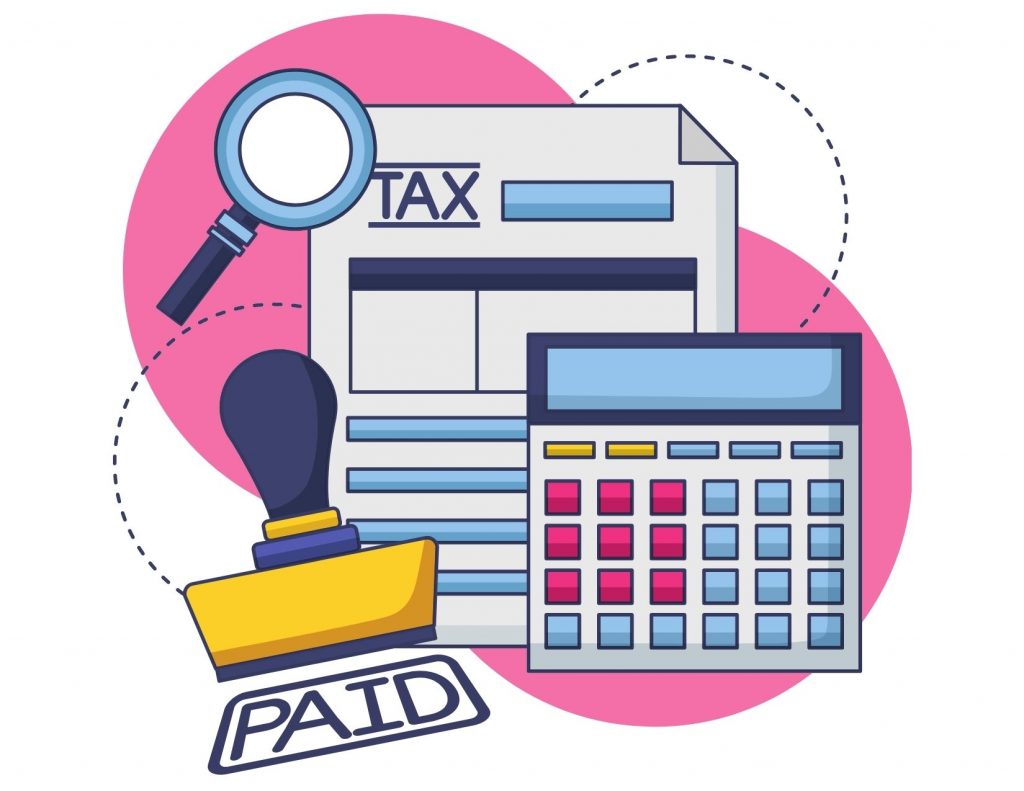
The Importance of Tax Regulation for B2B eCommerce
Avalara covers all of your business, including sales and use tax, going even beyond ecommerce. Working with every kind of industry and with over 30,000 customers worldwide, it’s safe to say they are the experts in tax regulation and compliance.
“Let’s talk a little about sales tax,” says Maria Tringali, Senior Solutions Consultant at Avalara, during the start of her presentation. What she initially conveys to us is the importance of tax compliance, and what all companies need to think about when it comes to meeting these guidelines, no matter the industry.
Nexus, exemption certificates, filing returns (even if zero dollar), and being prepared for an audit – these are just some of the things “under the iceberg” that companies should be thinking about. Maria carefully takes us through some of those things to more closely consider.
“We need to make this process easier on our staff. They’re not tax experts.” – Maria Tringali
“It’s important because manufacturers, distributors, and B2B businesses are at very high risk for audit. Auditors know that getting a sales tax rate wrong is just a little bit of revenue, but not having an exemption certificate on file for a sale can be a lot more money to them. If you had a $10,000 item that you sold and you did not charge tax, and you can’t prove why you didn’t, you’d have to pay the full tax rate to the government.”When discussing how companies can improve their processes, she cites some of the things she sees in her experience. “The key things here is a poor process, for handling these exemption certificates for your exempt businesses, creates negative customer experiences.” This is why it’s important to know if you’re prepared for these situations.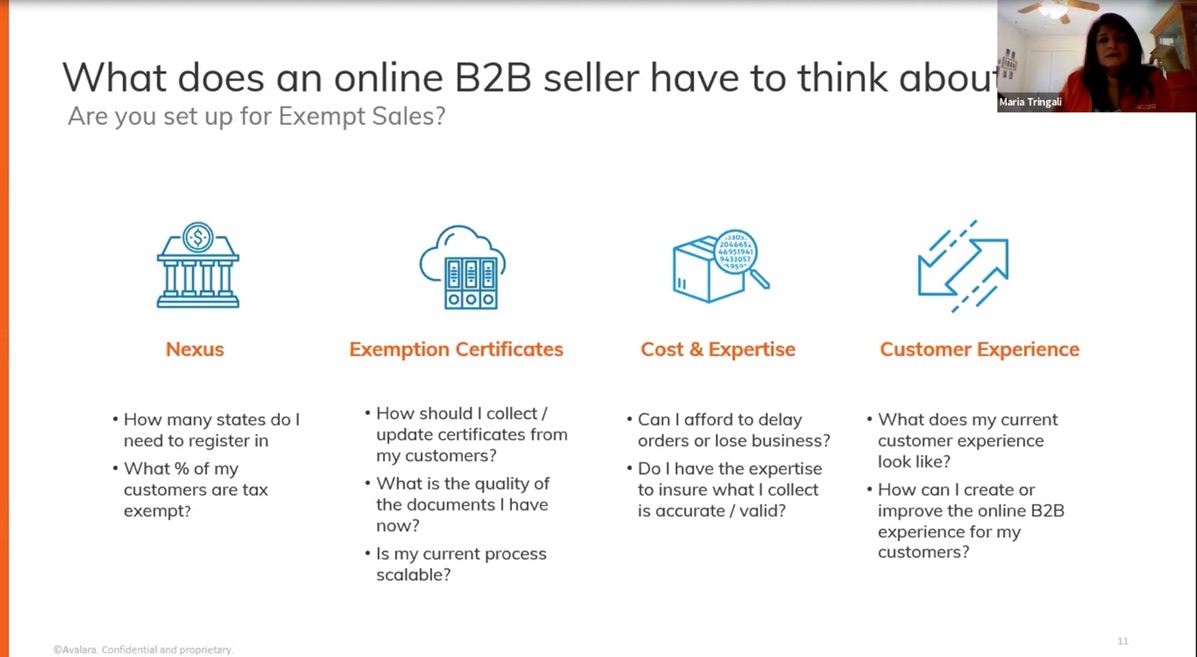 So, what does a B2B seller have to think about? Maria tells us that regardless of whether you are a B2B or B2C company, you have to be concerned with things like nexus, exemption certificates, cost and expertise, and customer experience. “All of these apply to your local business as well as your online business,” she explains. With Avalara being able to fully support Midland’s invoicing and sales process, and ensuring tax exemption for every transaction, this has been an important part of their success story. In going further on tax compliance automation, Maria tells us about the best way to start automating. “What you need in the beginning there is, not excel, but you need a compliance platform for your exemption certificates that connects with your tax determination engine.” This is where Avalara CertCapture comes in. It manages incoming certificates and digitizes and validates them, as well as communicates with customers, and much more. This also allows a seamless experience through the website shopping cart. Additionally, she tells us how their latest intimation of tax support with Avalara Vendor Exemption Management helps businesses rid the hassle of creating, sending, and tracking documents during purchase. It helps users easily send out certificates to vendors and digitally store and track what’s needed. Avalara Vendor Exemption Management works with Avalara CertCapture, allowing businesses the ability to manage incoming and outgoing tax exemption documents with a single, integrated application. In this way, and as seen in the example of Midland Scientific, Avalara shows us how easy and seamless the automation of B2B tax compliance can really be.
So, what does a B2B seller have to think about? Maria tells us that regardless of whether you are a B2B or B2C company, you have to be concerned with things like nexus, exemption certificates, cost and expertise, and customer experience. “All of these apply to your local business as well as your online business,” she explains. With Avalara being able to fully support Midland’s invoicing and sales process, and ensuring tax exemption for every transaction, this has been an important part of their success story. In going further on tax compliance automation, Maria tells us about the best way to start automating. “What you need in the beginning there is, not excel, but you need a compliance platform for your exemption certificates that connects with your tax determination engine.” This is where Avalara CertCapture comes in. It manages incoming certificates and digitizes and validates them, as well as communicates with customers, and much more. This also allows a seamless experience through the website shopping cart. Additionally, she tells us how their latest intimation of tax support with Avalara Vendor Exemption Management helps businesses rid the hassle of creating, sending, and tracking documents during purchase. It helps users easily send out certificates to vendors and digitally store and track what’s needed. Avalara Vendor Exemption Management works with Avalara CertCapture, allowing businesses the ability to manage incoming and outgoing tax exemption documents with a single, integrated application. In this way, and as seen in the example of Midland Scientific, Avalara shows us how easy and seamless the automation of B2B tax compliance can really be.
You can watch the full presentation here:

Enterprise Hosting Made Easy with Magento Commerce
Gary Smith, Strategic Partner Development Manager at Nexcess, was able to provide some insight in the hosting needs of Midland Scientific. He spoke on how they have been able to successfully manage performance and security, as well as some of the available features and the many advantages of their managed hosting solutions.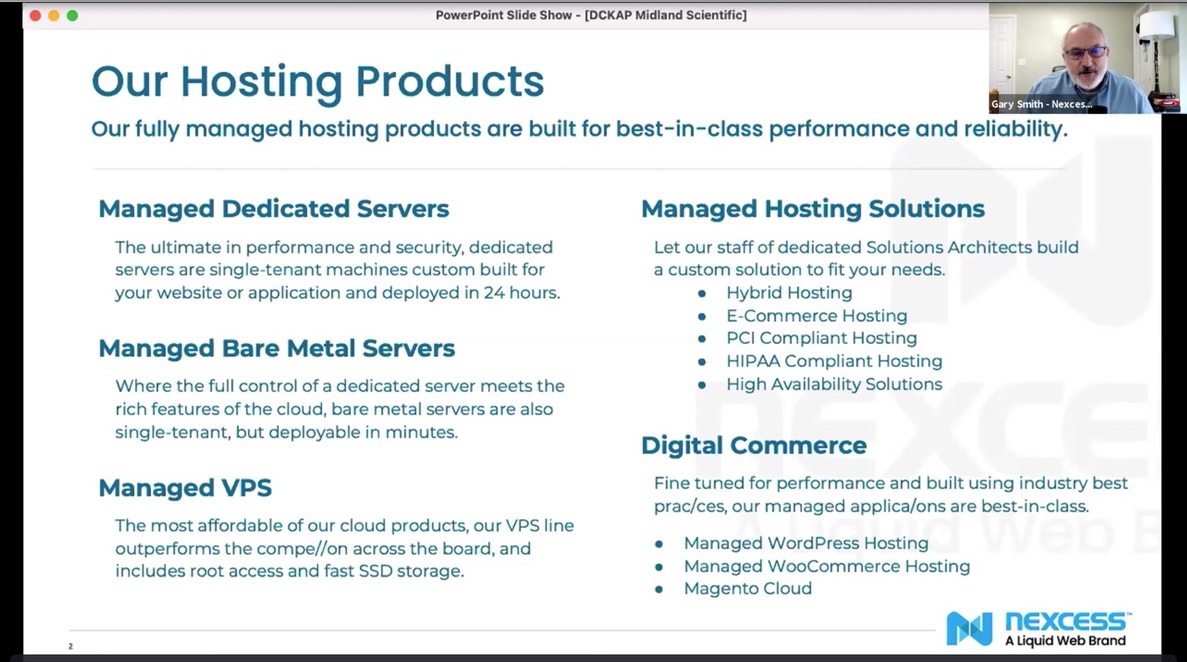 In talking more about local development environments versus cloud development environments, he brings up that certain circumstances do call for local environments to be the best option. But, more often, they see the need for a greater scale. As he tells us in talking more about their cloud plans. “Increasingly, virtualized servers, which we host in our own data centers, allow us to provide highly performance server instances and they range all the way from extra small, which starts at $49 a month. Scaled for about 20 users, all the way up to 2x servers at $849 a month. And those are conservatively scaled for 120 concurrent users, 800 GB of storage, and so on. ”Traffic is one of those occurrences that require great consideration. Depending on the amount of usage, auto-scaling can be very helpful. As Gary says, “For traffic spikes and heavy admin usage, which often occurs especially in a B2B site, we’ve got another resource to improve performance, which is auto-scaling.”
In talking more about local development environments versus cloud development environments, he brings up that certain circumstances do call for local environments to be the best option. But, more often, they see the need for a greater scale. As he tells us in talking more about their cloud plans. “Increasingly, virtualized servers, which we host in our own data centers, allow us to provide highly performance server instances and they range all the way from extra small, which starts at $49 a month. Scaled for about 20 users, all the way up to 2x servers at $849 a month. And those are conservatively scaled for 120 concurrent users, 800 GB of storage, and so on. ”Traffic is one of those occurrences that require great consideration. Depending on the amount of usage, auto-scaling can be very helpful. As Gary says, “For traffic spikes and heavy admin usage, which often occurs especially in a B2B site, we’ve got another resource to improve performance, which is auto-scaling.”
“We provide 24 hours of auto-scaling at no charge every month, so you don’t get a surprise bill when you have those relatively contained periods.” – Gary Smith
Many merchants also need to worry about those moments of heavy loads and how to avoid bogging down servers and ensuring consistency. “Containers are a way that we take certain services, and use those resources when they’re not being consumed by the main site,” Gary tells us. It helps expand the performance, management and security of your site. Deploying different cloud plans, or development instances, allows you to save time and cost, and really ensures that you have options and flexibility.
You can watch the full presentation here:
The Best Middleware Solution and Choosing DCKAP for B2B Implementation
Haritha Sridhar, Senior Software Engineer at DCKAP, talked about the key benefits of DCKAP Integrator (previously Cloras). That being the flexibility, increased efficiency, easier troubleshooting, and the improved user interface it provides. DCKAP worked with the client to understand their needs, simplify their processes, and ensure the end to end implementation 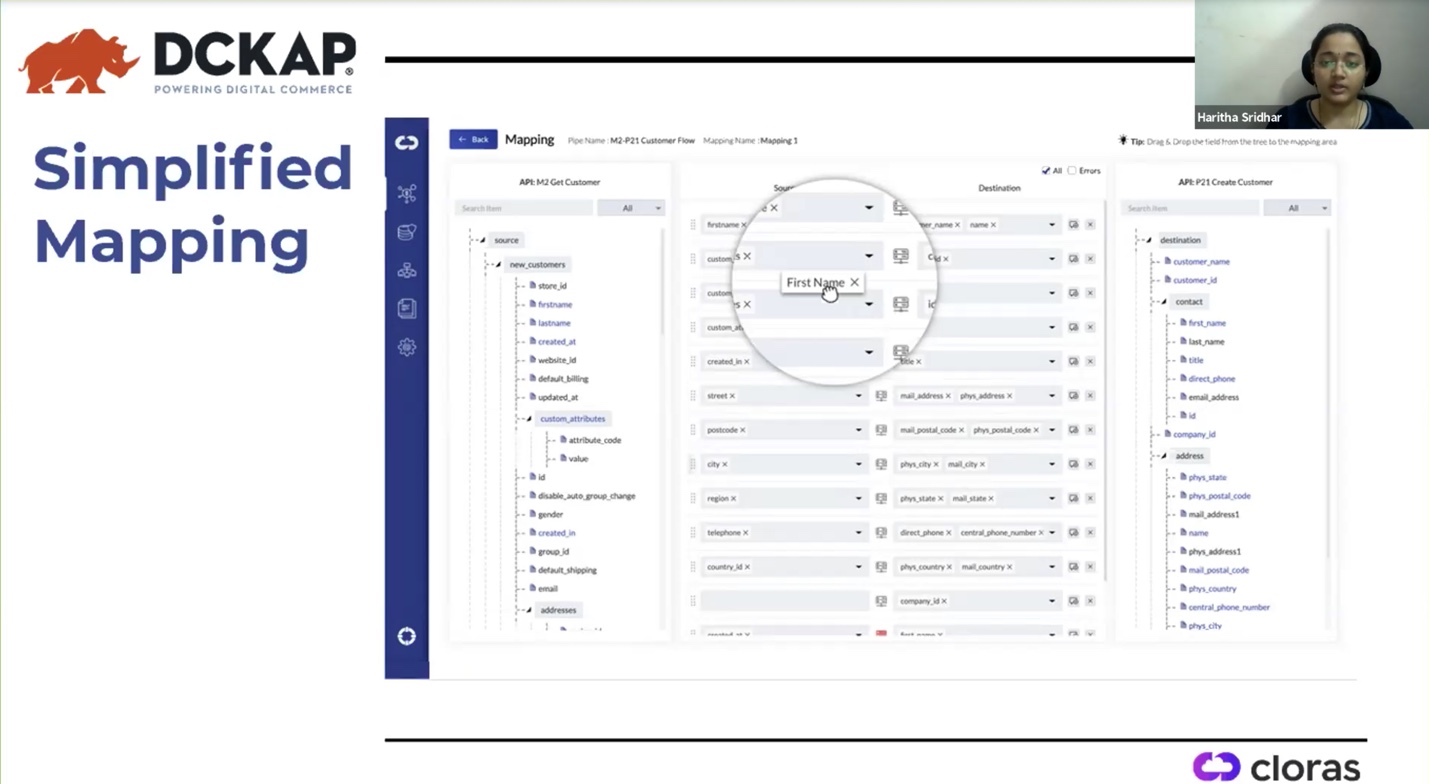 DCKAP was able to address and satisfy the client’s pain points, with speed and accuracy being at the center of their concerns. This included the much needed expansion of customization options and the flexibility of their Magento platform, offering better troubleshooting options, improving the time and speeds involved, as well as the ease of the user interface. With DCKAP Integrator (ERP Integration iPaaS), our team was able to seamlessly integrate their Magento 2 platform with their P21 ERP software. Now, the systems can communicate in real-time, greatly improving operations and providing the best solution for all their needs. You can read more in our full case study.
DCKAP was able to address and satisfy the client’s pain points, with speed and accuracy being at the center of their concerns. This included the much needed expansion of customization options and the flexibility of their Magento platform, offering better troubleshooting options, improving the time and speeds involved, as well as the ease of the user interface. With DCKAP Integrator (ERP Integration iPaaS), our team was able to seamlessly integrate their Magento 2 platform with their P21 ERP software. Now, the systems can communicate in real-time, greatly improving operations and providing the best solution for all their needs. You can read more in our full case study.
And you can watch the full presentation here:

A Deeper Dive into Integration and B2B Features
After the presentations, we sat down with all our guests to ask them some further questions around the project with Midland. We asked about their personal experiences and the successes they helped to drive, as well as insights in the importance of the integrated experience.

Efi Shabtai, Senior Commercial Customer Success Manager at Magento, came onboard to speak more on the advantages of Magento’s open source platform and how they shine in B2B. Efi was asked, in thinking about this project and others in a similar position looking to start their eCommerce venture, why choose Magento Commerce for B2B?
As she explains, Magento was a trail blazer in allowing a high level of flexibility to their merchants. “We’re one of the first open source platforms that enabled merchants to succeed with scalability and flexibility. You know, with being open source, you have that opportunity to create and innovate to what your business needs are and to be able to structure it that way.”
In going more in depth, she cites many ways that having this flexibility is helpful, such as offering better service, the ability to attract new customers, and more easily transitioning everyone into this new technology. One of their main goals is to ensure that the platform is able to cater to both B2C and B2B in one. “There’s a lot of features that are available that can be really useful to our merchants, as far as policies, procedure, approvals, workflows. So there’s a variety of things that can be very beneficial to both B2B and B2C merchants.”

When asking further about some of the biggest pain points they see in the B2B market, and how the Magento platform can help solve those pain points, she referenced back to the scalability and flexibility they offer. Solving merchant’s issues and ensuring the best ecommerce experience, really comes down to being a robust open source platform.
As Efi described, Magento helps “many different types of B2B businesses that have a large variety of SKUs, that have different workflows, different purchasing procedures, so there is that flexibility to kind of create the workflow based on certain levels and what the company wants to see as far as how the workflow works for them.” In this way, along with their detailed support and years of experience, they’re able to bend and flex to the wide variance of B2B ecommerce needs, to work with each unique business requirement.
You can watch the full panel discussion here:
If you’d like to read highlights or watch any of the speakers from last year’s DCKAP eSummit B2B Edition event, you can visit our post event recap blog, and you can watch the full event playlist here.

